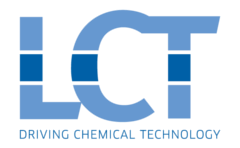César Alejandro Urbina Blanco and Ruben Van de Vijver were awarded an FWO postdoc scholarship
(31-07-2019)
Two FWO postdoc scholarships were awarded to LCT researchers.
The project of César Alejandro Urbina Blanco is entitled "Catalytic Conversion of CO2 to Chemicals" and deals with the discovery of efficient technologies enabling the use of CO2 as a starting material for chemical synthesis is one of the most significant challenges of our time. They could serve the dual purpose of reducing CO2 emissions and producing value-added chemicals, thus helping the environment mitigating the effects of climate change while creating new opportunities for the chemical industry. Our research focuses on the synthesis of Acrylic Acid and Acrylates from CO2. These compounds are the precursor of superabsorbent polymers required for the production of diapers and feminine hygiene care products with a global year market of approximately 5 million metric tons, and an estimated worth between 7-10 billion euros. Accessing acrylic acid and acrylates directly from CO2 could represent a breakthrough for the synthesis of renewable polymers worldwide. This research is in line with the 2050 Research Priorities of the European Union for CO2 capture and utilisation and the efficient use of raw materials as well as with the Flemish Priorities in Science, Technology and Innovation towards 2025. We aim at exploring the interface between homogeneous and heterogeneous catalysis, merging expertise in the Laboratory for Chemical Technology (Prof. Saeys) in the design of heterogeneous catalysts, with the background in experimental organometallic chemistry and ligand design from Dr Urbina-Blanco.
The project of Ruben Van de Vijver is entitled "Data Driven Molecular Modelling for Reactor Design" aims at developing tools for an extensive multiscale simulation approach for heterogeneously catalyzed reactions. This requires software tools to aid the development of accurate and complete microkinetic models. These tools will allow the the automatic generation of all possible chemical reactions, and the calculation of the associated data for these reactions, i.e. the thermochemical parameters of all species and all reaction rate coefficients. This includes the automatic calculation of these data using state-of-the-art density functional theory methods. A data-driven approach is envisioned which will enable the use of strong machine learning techniques to maximize the usability of all data. Since all these steps will be automated and user-involvement will be minimized, we expect the set of developed tools to be more exhaustive, more complete and more accurate compared to current manual kinetic model development. The approach will be tested by using the oxidative coupling of methane as case study, in collaboration with several experimental researchers and with computational fluid dynamics researchers to go from the molecular information up to the full reactor scale in multi-scale simulations.
